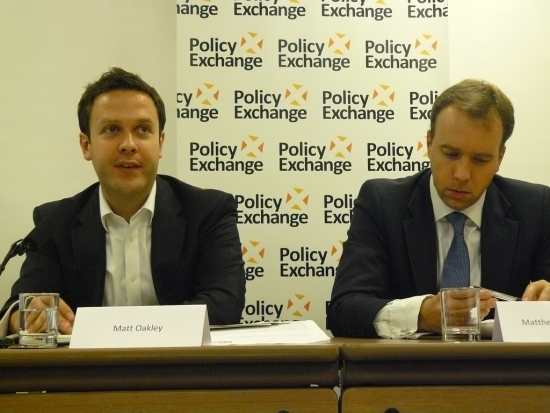While figures have certainly improved over the past few months, unemployment remains a key issue standing between Britain and full economic recovery. Although the unemployment rate has fallen at an impressive rate so far this year, sectors such as youth and long term unemployment continue to remain high, prompting the government to question how this problem can be addressed.

Matthew Hancock MP (right)
Conservative minister Matthew Hancock claims that companies should be the catalyst for change by hiring workers from within the UK rather than taking “the easy option” of hiring from overseas. In fact, he believes that this is a “social duty” for firms which depend on UK consumers to prosper and grow.
Mr Hancock, who is in charge of skills policy at the Department for Business, also outlined how firms with solid apprenticeship schemes in place tend to see boosts in motivational levels amongst their staff.
Speaking on BBC Radio 4’s Today programme, Mr Hancock said; “The responsibility of employers is to the communities they live in as well as to making a pure profit.
“I am arguing that it is companies’ social responsibility, their social duty, to look at employing locally first.
“Those who put the effort in have ended up with a more motivated employee, who is more connected to their company, because if you as a company put something in, you get someone with a great attachment in return.”
At the present time, only 7 per cent of all firms operating within Britain operate an apprenticeship programme despite significant government investment in the area. As chief executive of the Work Foundation, Will Hutton, points out, statistically this means an 18-24 year old has a greater chance of being accepted by Oxford University than gaining an apprenticeship position with a British firm.
He continues; “There is plainly a problem. You have got half a million people coming into the country every year finding work and you have got nearly a million people aged 18-24 without work.”
Thanks to free movement of labour within the EU, sites offering foreign nationals the chance to work in the UK have become increasingly numerous despite Britain’s economic woes. There are currently 800,000 jobs for EU workers being advertised by British firms.
Yet the timing of Mr Hancock’s speech has been heavily criticised by political commentators; many of whom believe this is simply an effort by the Conservative Party to wrest votes away from the increasingly popular UK Independence Party.
Whether his comments are simply to try and win votes or a genuine attempt at securing jobs for young British workers, Mr Hancock has certainly highlighted the elephant in the room when it comes to the unemployment debate.
Do you think British firms should always hire British workers when possible, or should they instead make a decision based on the candidate who is most qualified for the position regardless of background or nationality?
Previous Post
Are We Still Hanging on the Telephone?